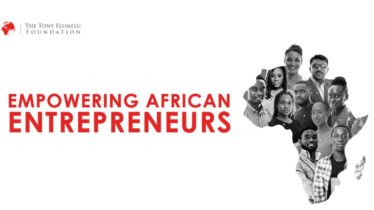Nigeria is Policy ready for the Fourth Industrial Revolution
The Fourth Industrial Revolution can increase global income levels and boost people’s quality of life all over the world.
While it might seem far away for third-world countries, developed countries have begun to employ innovations that herald the fourth industrial revolution.
Consumers who can afford and navigate the digital world have benefited the most so far; technology has enabled new products and services that improve the quality and enjoyment of our personal lives. Any of these tasks, including ordering a taxi, booking a flight, purchasing a product, making a payment, listening to music, watching a movie, or playing a game, can now be completed remotely.
Nigeria, according to the Executive Vice Chairman, Nigerian Communications Commission (NCC), Prof. Umar Danbatta, is not lacking in key policy and regulatory frameworks for 4IR. The major bottleneck to the revolution will be the infrastructural gap in the country.
Danbatta, who was represented by Barr. Adeleke Adewolu, Executive Commissioner, NCC Stakeholder Management, said the Commission is aware of the crucial need to leverage the efforts of all critical stakeholders across all business channels; and professional groups to ensure people completely engage in the 4IR as drivers and innovators.
The Executive Vice Chairman, who expressed hope that NCC “can continue to count on the support of all stakeholders in this quest,” said that the theme for the session was of immense importance at this stage of the nation’s development; as it allows stakeholders to assess ongoing effort, said at the event, which was anchored by the National Coordinator, Alliance for Affordable Internet (A4AI), Olusola Teniola.
Providing a contextual background to the discourse, Danbatta said “the 4IR brings with it the potential to connect billions of people to digital networks and dramatically improve the efficiency of organisations”.
He further stated that “Putting this within the Nigerian context, the challenge before us today is clear. It is one we must approach with the strongest resolve, and; with the full cooperation of all critical stakeholders to ensure that no one is left behind in the evolving digital future.”
According to Danbatta, a nation’s ability to capitalize on the 4IR’s opportunities would be contingent on effective guiding mechanisms that address the various facets of the digital environment and; ensure their effective interworking in the national interest.
Nigeria, according to the Executive Vice Chairman, has policies and regulatory structures; and instruments in place that will allow the country to play a leading role in powering the 4IR period.
He gave an example of the National Digital Economy Policy and Strategy Policy (2020-2030); which has eight pillars designed to help Nigeria become a global leader in the digital economy; provide a catalyst for economic diversification; and accelerate the achievement of key national objectives such as improving security and reducing corruption.
“Similarly, the Nigerian National Broadband Policy (2020-2024) highlights the various implementation strategies that would aid the pervasive inclusion; and rollout of broadband services across the country whilst also developing a robust and holistic digital economy.
“The NCC’s Strategic Management Plan (SMP 2020-2024 or “ASPIRE 2024”) consolidated on the vision we earlier articulated in the Strategic Vision Plan and 8-Point Agenda,” he stated.
The Executive Vice Chairman also admonished stakeholders to support the ongoing citizens’ identification and digital identity project.
He stated that “the Federal Government has articulated a policy that all Nigerians must possess a unique National Identification Number (NIN) issued by the National Identity Management Commission (NIMC); and that the NIN must be linked with all identity databases, particularly the Subscriber Identity Module (SIM) Registration database. To achieve this, we had to take the difficult decision of suspending the actuation of all new SIMs; and to mandate all citizens to link their SIMs to their NINs.
“I am pleased to note that we have achieved very significant success in the articulation of a template for the activation of new SIMs linked with authenticated NINs; and that the activation of new SIMs will now be carried out across the country in earnest,” he stated.
However, Gbenga Adebayo, Chairman of the Association of Licensed Telecoms Operators of Nigeria (ALTON), said that while the industry is ready; other sectors are struggling. We continue to face challenges such as reliable power supply, a lack of infrastructure; and significant land instability, to name a few. Other industries must also be prepared to ensure that we are prepared as a nation for 4IR.”
Although the government must aim to establish an enabling atmosphere; Adebayo believes that there must be coordination among the various levels of government (FG, SG and LG).
Broadband is critical to 4IR, according to Gbenga Odegbami, CEO of Youverify. While questioning the relevance of the New National Broadband Plan (NNBP 2020-2025), he stated that broadband access is a stimulus; emphasizing that the 70% goal is good enough for the next five years; but where will the rest of the world be in the next five years?
According to Odegbami, the country’s infrastructure for digital transformation is still lacking. Data is also essential to 4IR, he says, but there could be issues if there is no actual data protection.
For this and much more Information relating to employability skills, employment opportunities, career advancement, and entrepreneurship development; Join our Telegram and WhatsApp groups, and also follow us on Twitter and Facebook.




May 7, 2021 @ 10:36 am
The essence of national and international security would be significantly affected by the Fourth Industrial Revolution, impacting both the likelihood and nature of conflict. thanks for sharing